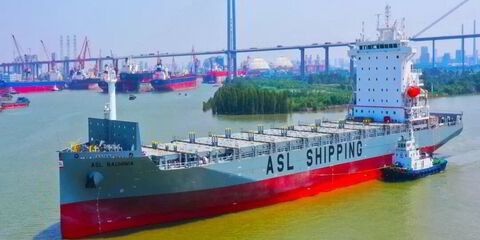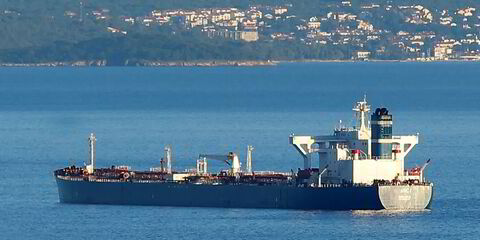In our industry, we live and breathe with huge uncertainties — cyclical industries have taught us there is no status quo or '5%' annual growth for eternity. We must be on our toes and agile to — hopefully — make good and countercyclical decisions: uncertainties also create opportunities.
The pandemic may have transformed how we work, live and consume, but this shock has turbocharged the forces that were already there and is the ultimate stress test for our ability to adapt, navigate, survive and seize opportunities.
This article is one of more than three dozen contributions from shipping industry stakeholders about their outlook for decarbonisation efforts in the year ahead. We asked shipowners, managers, financial professionals, technology providers and more about their own efforts to address greenhouse gas emissions in 2022 and what they hope to happen in the industry this year.
In general, we do cope impressively well, quickly grasping new opportunities — although it is still the seafarers taking the brunt of the challenges, a great kudos to their patience and strength.
The main focus on my mind, more and more, is how we manage to lead the industry towards the greener shift and the energy transition.
The International Maritime Organization does not show the speed to be the leading star we need.
Little progress was made at the MEPC 77 meeting on the revision of the initial greenhouse gases strategy, the approval of a $5bn research-and-development fund for decarbonisation, and market-based measures (read carbon levy). The postponement will not speed up the decarbonisation of shipping.
The push will now need to come from other sources: from regulators — in particular the European Union — from capital, debt and equity, which we do need to see to get our feet off the ground. And let us not cloud the issue by setting useless targets; they need to be clear, measurable, and close enough in time to motivate and long enough to be achievable.
What is the core enabler then?
In my opinion, the single most important element in handling climate risk is pricing risk properly. A global carbon levy has been a theme for a time and was on the agenda at the Global Maritime Forum in 2019 and each one thereafter.
There is a general acceptance today that we need a global carbon price, so let's speed up the process of deciding how.

Another aspect of the same relevance is the lack of pricing of risk globally. Pricing may start to kick in, but slowly.
Incentives to reduce emissions are the only real brake we have. It is not about minimising the risk; it is to price appropriately. Risk is what we measure, uncertainty is what we manage.
I am still an optimist, for all the engagement and investment, but impatient as I question if the seriousness and action needed has really dawned on us.




